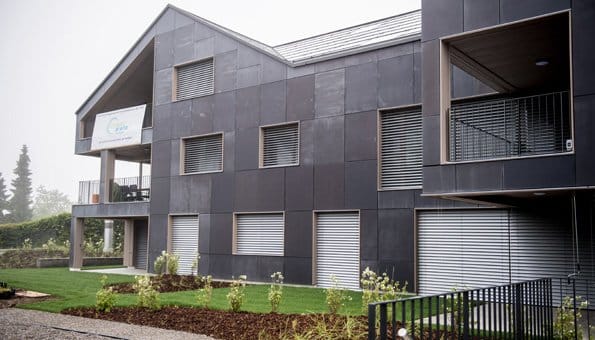Real Estate in Switzerland: A Stable, Competitive, and Highly Regulated Market
Switzerland’s real estate market consistently ranks among the most stable and secure in the world. Fueled by strict regulations, top-quality construction, and the enduring strength of the Swiss franc, this environment appeals to both local and international investors seeking long-term value. Despite high prices and complex legal frameworks, the market remains resilient, attracting a diverse range of buyers while maintaining a balance between tradition and innovation.
Cultural Preferences: Renting vs. Owning
A defining feature of Swiss real estate is its strong rental culture. More than 60% of households rent, influenced by a combination of historical preference, affordability concerns, and tenant-friendly regulations. Long-term rental contracts, stable pricing, and robust tenant protections create an ecosystem where renting is not only accepted but often favored, especially in popular urban centers like Zurich, Geneva, and Basel. This rental focus eases pressure on homeownership, allowing the market to stay flexible and responsive to changing demographics.
Institutional Investors and Pension Funds
Pension funds exert a powerful influence on the Swiss property landscape. With large portfolios dedicated to commercial and residential real estate, these institutional investors seek stable, long-term returns. Their consistent demand encourages the development of premium properties, fueling upward pressure on prices and ensuring a continuous supply of rental units. This institutional presence promotes market stability, as it reduces volatility and strengthens confidence among both individual buyers and foreign investors.
Demographic Forces and Immigration
Switzerland’s robust economy and high quality of life attract skilled workers and professionals from around the world. This steady inflow of talent, coupled with natural population growth, intensifies the demand for housing. Urban and border regions feel the greatest pressure, resulting in limited availability and rising prices. As supply struggles to keep up, new projects must navigate strict zoning laws, further elevating costs. The interplay between demographic pressures and regulatory hurdles keeps the market competitive, ensuring that even smaller cities see substantial interest.
The Swiss Franc: Economic Stability and Investor Confidence
A key factor underpinning Switzerland’s real estate market is the enduring stability of the Swiss franc (CHF). This strong currency acts as a financial safe haven during global economic uncertainties, preserving purchasing power and minimizing inflation risks. For investors seeking long-term asset security, the CHF’s reliability translates directly into confidence in property investments. This currency strength safeguards real estate values over time, making the Swiss market especially appealing to cautious investors who prioritize security over rapid gains.
Regulatory Constraints: Bäuerliches Bodenrecht and Foreign Ownership Limits
Switzerland’s property regulations are both stringent and uniquely protective. The Bäuerliches Bodenrecht (BBR), or agricultural land law, aims to prevent speculative development on farmland. While this measure safeguards the country’s agricultural heritage, it also constrains the supply of buildable land, intensifying competition in urban markets.
At the same time, foreign ownership regulations—exemplified by the Lex Koller law—restrict non-residents from freely purchasing property. Certain designated zones, such as holiday areas, offer limited exceptions. Although these rules preserve local ownership and cultural integrity, they can deter some international investors and slow down the inflow of foreign capital. For those who do manage to invest, this exclusivity can enhance the long-term value of their assets.
High Property Prices and Rising Competition
Switzerland’s real estate prices rank among the highest in Europe. Multiple factors drive these elevated costs: limited land for new developments, strong demand from both locals and foreigners, and consistently low interest rates that encourage borrowing. Buyers must navigate a fiercely competitive market where affordability becomes an increasing concern. Yet, the upside is that these high prices often reflect high-quality construction, sound maintenance standards, and lasting value, ensuring properties remain desirable assets over the long run.
Outstanding Construction Quality and Strict Building Codes
Swiss building standards are world-class, prioritizing durability, energy efficiency, and environmental sustainability. Homes and commercial buildings frequently incorporate renewable materials, advanced insulation, and modern systems designed to minimize energy consumption. Stringent building codes ensure that new developments complement existing neighborhoods, blending aesthetic harmony with efficient urban planning. These rules not only enhance the daily experience of residents but also safeguard the long-term value of investments, reassuring buyers that Swiss real estate is built to endure.
The Mortgage Landscape and Financing Options
Financing a property in Switzerland typically involves working with conservative lending practices. Swiss banks often require substantial down payments—commonly around 20% or more of the purchase price. Moreover, mortgage interest rates have remained relatively low, supporting continued buyer interest. While the stringent credit checks and affordability assessments may slow down the purchasing process, they also act as a buffer against speculative bubbles, ensuring that buyers are financially prepared and reducing the likelihood of defaults.
Tax Considerations and Ownership Costs
Property taxes in Switzerland vary by canton and municipality, contributing to the nuanced landscape of real estate costs. Buyers and owners must navigate different tax regimes, including wealth taxes on property, annual rental value taxes for owner-occupied homes, and capital gains taxes on property sales. In addition, buyers face notary fees and land registry costs that vary by region. Although these expenses add complexity, Switzerland’s transparent and reliable legal framework ensures that property transactions remain secure and well-documented, sustaining investor confidence.
Zoning, Planning, and Infrastructure
Swiss authorities maintain strict oversight of land use and development through comprehensive zoning laws and meticulous urban planning. These regulations preserve scenic landscapes, maintain green spaces, and control building density. As a result, properties often command premium prices due to their location, surroundings, and adherence to aesthetic guidelines. Public infrastructure—such as efficient transportation networks, well-maintained roads, reliable utilities, and quality public services—further enhances the desirability of Swiss real estate, promoting steady demand and long-term growth.
Regional Variations in the Swiss Market
While Zurich and Geneva frequently dominate headlines, each region of Switzerland offers distinct property dynamics. Basel, Bern, Lausanne, and Lugano, among others, have their own mix of price levels, economic drivers, and cultural factors. Mountain resorts, like those in the Valais or Graubünden cantons, attract luxury buyers and foreign visitors who seek holiday homes in scenic locales. Border regions close to Germany, France, and Italy benefit from cross-border workers and investors, sustaining demand across multiple segments. Understanding these regional variations helps buyers identify opportunities that match their investment goals, whether they seek stable returns, lifestyle properties, or both.



